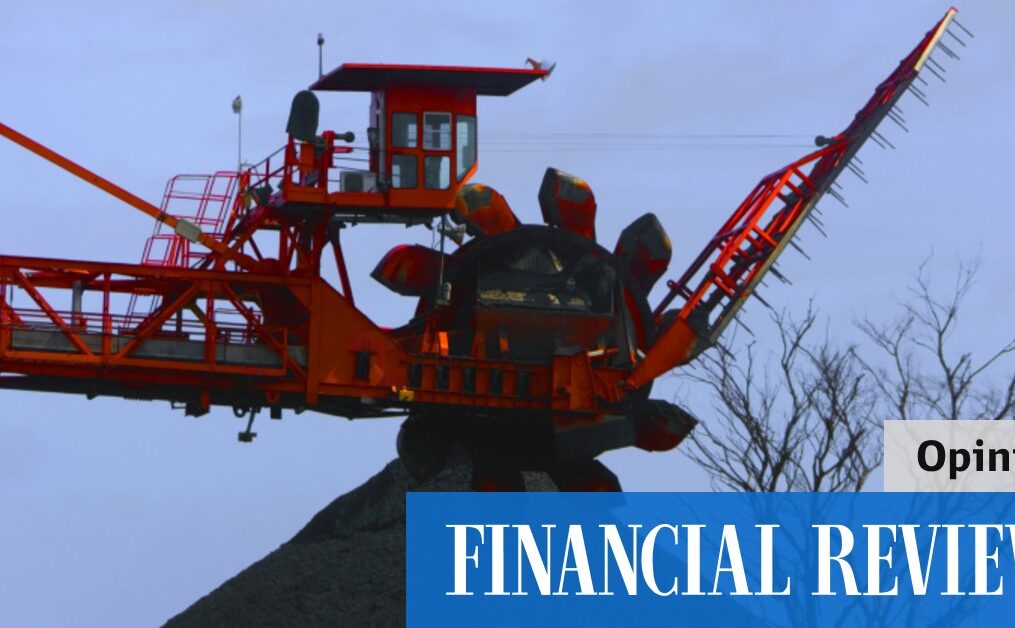Coal exports are the elephant in the climate policy room
China has plenty of its own coal, but not the high-quality inputs it needs for steel manufacturing. That’s why China is the world’s largest importer of coal. Australia has what it needs, and we can’t feed it to China fast enough.
Prime Minister Anthony Albanese has stated that he is a big supporter of fossil fuel and minerals exports, “a trusted, stable supplier”.
But Australia is different from all other countries because we are the world’s largest exporter of coal. The only other substantial exporters are Russia and Indonesia.
The four biggest importers, in order of size, are China, India, Europe, Japan and South Korea. These account for some 72 per cent of all coal imports.
The three biggest exporters supply just about all the needs of these five: Russia for Europe and Australia and Indonesia for Asia.
Our politicians on both sides like to focus on our (relatively small) domestic emissions. In 2021, these stand at just 433 million tonnes. China’s increase in 2021 was 30 per cent higher than our entire domestic emissions.
Our coal exports, on the other hand, are not small. In 2021, these stood at 1100 million tonnes of Co² equivalent, almost two-and-a-half times our entire domestic emissions just from coal exports alone. This is what Australians need to care about.
What does it mean to cut domestic emissions by 43 per cent of 2005 levels in comparison to these coal exports? From 2021, this entails cuts of about 21 million tonnes a year to get to the 2030 target.
These amounts are trivial compared to what our politicians want to do on the export side. Labor wants to accelerate the 1100 million tonnes of exported coal, but also gas and minerals exports.
Politicians on both sides argue that if we didn’t export it, someone else would. This isn’t true.
China and India have double Australia’s coal reserves, but it is not suitable for their steel manufacturing needs. Russia and Indonesia can’t fill that gap with the “right stuff”.
The political strategy seems to be to focus the public attention on the domestic emissions and encourage the view that this, rather than our massive coal exports, is what matters for dealing with climate change.
Many good-hearted voters don’t seem to realise that, as popular as the little Australian climate policies are (electric vehicle charging stations for example), the damage that our coal exports are doing is where we should really be looking.
How many times is it necessary to say that a lump of coal burnt in China or India has the same implications for climate change as if it were burnt right here in Australia.
We package up our fossil fuels and minerals and send it off to China and India to pollute, while we look the other way.
Australia has never had a comprehensive economic plan that gets away from a reliance on the low-hanging fruit of energy and minerals exports. Such a plan doesn’t mean trying to achieve it all by tomorrow, destroying jobs, as the opposition likes to imply.
But it does mean beginning the transition now.
The centrepiece of a plan to do this, as Julia Gillard recognised, is a tax on the carbon content of fossil fuels. Unlike a cap-and-trade system, this does not predefine what should happen to coal production and exports, but it does pre-define the carbon price and leaves it to businesses, individuals and the buyers of our exports to adjust over time.
It also encourages and speeds up the switch to cheaper renewables.
The destruction of the environment is a massive social cost (an externality) that isn’t being paid for by the big polluters.
A good plan also requires that the carbon price be accompanied by a complementary policy to find alternatives to fossil fuel and mineral exports over time.
That policy should be to join with Europe (the already legislated EU Carbon Border Adjustment) and possibly also the United States (the Clean Competition Act), with a carbon border tax strategy.
This encourages domestic manufacturing, helping us to get away from digging holes in the ground. All imported goods would be taxed equal to what would be paid were the foreign goods produced in Australia.
A level playing field is thereby created. The policy forces a tax on China to bring it into line with the domestic costs that industries face in dealing with climate change.
Together, these price signals would begin the transition away from our damaging export footprint while creating new jobs over time to fill the gap.
But there doesn’t seem to be a leader in this country with the courage to do the right thing. Being re-elected is all that seems to count.
And this is best served by grooming the national discussion to focus on the 43 per cent cut to our small domestic emissions as though it were somehow meaningful to our grandchildren.
Worth doing of course, but it is small beer compared to what governments want to do with fossil fuel and mineral exports.
